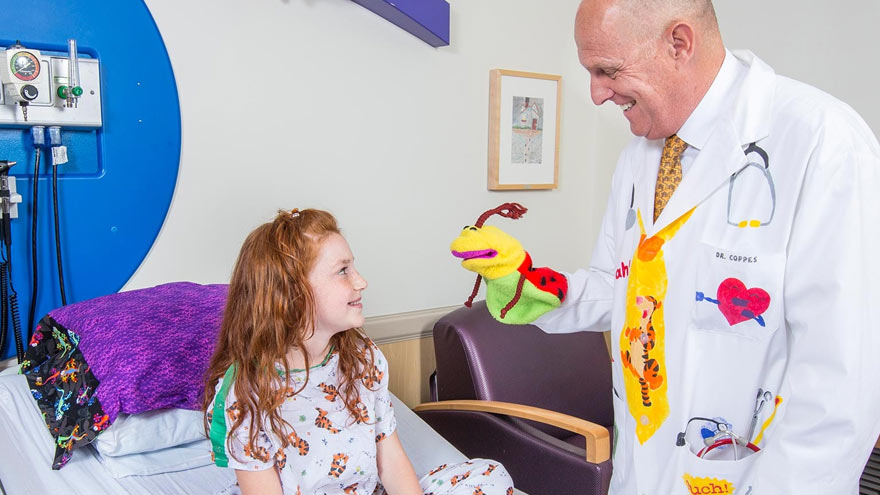Buscar
-
What is Polycystic Ovary Syndrome (PCOS)?
Dr. Carilyn Hoffman with Renown's Women's Health explains the symptoms, causes and treatments of Polycystic Ovary Syndrome (PCOS) (also referred to as Polycystic Ovarian Disease (PCOD)), a prevalent condition among women of reproductive age that influences hormonal balance, metabolism and fertility. Make an appointment with Renown Women's Health Click here to schedule Call to schedule: 775-982-5000 PCOS Defined PCOS is a constellation of symptoms characterized by two of the three criteria: multiple small cysts on the ovaries visible via ultrasound, irregular periods and signs of hyperandrogenism. Other symptoms include infertility, insulin resistance, and increased risk of cardiovascular disease. Symptoms of PCOS The symptoms of PCOS can vary from woman to woman, but some of the most common include: Irregular menstrual cycles: This is often one of the first signs of PCOS. Women may experience fewer than nine periods a year, more than 35 days between periods, frequent spotting, and/or abnormally heavy periods. Excess androgen levels: High levels of male hormones may result in physical signs such as excess facial and body hair (hirsutism), severe acne and male-pattern baldness. Polycystic ovaries: Enlarged ovaries containing numerous small cysts can be detected via ultrasound. Causes and Risk Factors The exact cause of PCOS is unknown, but several factors may play a role: Genetic predisposition: A family history of PCOS increases the risk. Insulin resistance: High insulin levels might increase androgen production, causing difficulty with ovulation. Obesity: Women with elevated BMI’s are more likely to have PCOS, although 20% of women with PCOS are not obese. Diagnosis and Treatment Dr. Hoffman outlines that diagnosing PCOS requires a medical history review, a physical exam, blood work and an ultrasound to evaluate the ovaries. Treatment options can range from lifestyle modifications, like diet and exercise and weight loss, to medications for menstrual regulation, fertility assistance, and rarely surgery. Lifestyle Changes A healthy lifestyle is a cornerstone of managing PCOS. Regular exercise, a nutritious diet, and weight management can help reduce symptoms and the risk of long-term health issues. In overweight patients, weight loss as little as 5% has been shown to improve symptoms of PCOS. Medication Medications may include hormonal contraceptives to regulate menstrual cycles, anti-androgens to reduce hair growth and acne, and Metformin to address insulin resistance. Fertility Treatment For women with PCOS who are trying to conceive, ovulation induction with clomiphene or letrozole is sometimes necessary. Sometimes a referral to a reproductive endocrinologist and infertility specialist is needed for more advanced technologies like IVF. Health Implications PCOS is not just about cystic ovaries or irregular periods; it can have profound implications on a woman's overall health. Women with PCOS are at an increased risk for several conditions, including type 2 diabetes, high blood pressure, heart disease, and endometrial cancer.
-
Why Your Teen Athlete Should See a Sports Medicine Doctor
Seeking specialized care for your teen from a sports medicine doctor is essential. Like a coach fine-tunes a player's skills, our experts fine-tune your teen's health, ensuring they stay at the top of their game. Luis Palacio, MD, a sports medicine physician with Renown Health, shares information to help young athletes safely push their boundaries and achieve their personal best. The Role of Sports Medicine Sports medicine is a specialized branch of healthcare that focuses on preventing, diagnosing and treating injuries related to physical activity and sports. Renown's Sports Medicine team consists of skilled professionals passionate about keeping young athletes performing at their peak while minimizing the risk of injury. With a comprehensive approach to care, our sports medicine doctors provide tailored guidance and solutions to help your teen reach their full potential. Injury Prevention and Education Prevention is the key to maintaining a long and successful athletic journey. Our sports medicine doctors collaborate with young athletes to educate them about proper warm-up techniques, body mechanics, and techniques to prevent overuse injuries. From understanding the importance of rest days to practicing correct form, our experts empower teen athletes with the knowledge they need to stay in the game.
Read More About Why Your Teen Athlete Should See a Sports Medicine Doctor
-
Retomando las citas de su hijo
If you’ve been putting off care for your child, know that Renown Health is prepared with updated processes and procedures to ensure safety for you and your little ones. Doctor Max Coppes, MD, PhD, MBA, Physician-in-Chief of Renown Children’s Hospital, is concerned there could be an outbreak of serious illnesses if parents continue to delay getting their children immunized. Dr. Coppes and team understand your anxieties when it comes to visiting your pediatrician, and would like you to know; not only are well visits important to assess your child’s overall health, crucial vaccinations are administered to guard your little ones against disease. Immunizations Immunizations protect children from communicable diseases. Other benefits include: Children that are unable to have vaccines due to age or illness are protected through herd immunity Vaccinations are at given at specific intervals, and missing an appointment may put your child behind schedule Elderly populations are protected where immunity may be decreased Dr. Coppes states, “What we have noticed nationwide, and also in Washoe County, is that the number of kids immunized has gone down by about two-thirds. If that goes on, we’re just waiting for chickenpox, measles, any of those childhood diseases that were eradicated to come up again.” 4 Easy Ways to Schedule an Appointment: Call Us: 775-982-KIDS (5437) Request Appointment Online MyChart Virtual Visits In-Person Wellness Visits/Checkups Maintaining your child’s health is important! Contact your pediatrician to schedule an in-office visit. When you call to make an appointment, you’ll talk to a specialist at our Customer Care Center who will screen you to make sure you and your child have not been exposed to someone with COVID-19, and ensure symptoms of a respiratory illness are not present. Virtual Visits When appropriate, many pediatric appointments are available through virtual visits. Please call 775-982-KIDS (5437) to request a visit with your child’s established provider. All virtual visits require a MyChart account. Don’t have a MyChart account? You can easily sign up online. If you need assistance with your MyChart account, please call 775-982-6686. Virtual visits are able to connect to an ASL interpreter (sign language interpreter), and 37 languages including Spanish.
Read More About Getting Your Child's Appointments Back on Track
-
The Risks of Vaping and E cigarettes
In this article reprinted with permission from the Galena Times, Dr. Max J Coppes, Physician-in-Chief, Renown Children’s Hospital, and Nell J. Redfield, Chair of Pediatrics, UNR Med, talk about adolescents vaping, and how an estimated additional 10 million teens are at risk to start using e-cigarettes. What are E-cigarettes? E-cigarettes are battery-operated devices heating a liquid (e-juice) into an aerosol to be inhaled. Breathing in this flavor vapor, which usually contains nicotine, anti-freeze or other cancer-causing chemicals is called ‘vaping.’ There are many forms of these electronic nicotine delivery devices - and they're not always obvious. They not only appear to be cigarettes, cigars, or pipes, but also pass for everyday items, such as flashlights, flash drives or pens. The Effects of Vaping and E-cigarettes Regardless of the nicotine delivery, vaping is addictive and is quickly becoming a public health concern. Nicotine levels in e-cigarettes vary greatly, and they may also contain toxic chemicals. Currently there is a wide range of variability among vaping products. In other words - they deliver different ingredients, hardware, levels of nicotine, and possible toxic chemicals to the user. This makes it challenging to create an overall public health recommendation on their use. Nevertheless, there is no confusion about the harmful effects of the chemicals used in e-cigarettes to the young brain, which develops until age 25. Studies show e-cigarette use serves as an introductory product for teens to go on using ‘regular’ tobacco products. The American Academy of Pediatrics has several recommendations on their use. Such as increasing the minimum age to buy tobacco products, including e-cigarettes, to age 21 nationwide. (Update: nationwide the age as of January 2, 2020 is now 21.) A common misunderstanding with teenagers is the belief e-cigarettes are less harmful than other tobacco products. Moreover, there is a wide range of flavor choices, from mint, mango, crème brûlée to cucumber to attract users. As of September 6, 2019, The Centers for Disease Control and Prevention is reporting over 450 possible cases of lung illness associated with the use of e-cigarette products in 33 states. What Should Parents Know about Vaping? Parents and teachers should know JUUL is a very popular e-cigarette among teenagers, capturing about 68% of the market. JUUL is sleek, small, hides easily, and resembles a flash drive. Surprisingly it charges in an USB port, and can also instantly be mistaken for a real flash drive. One JUUL cartridge contains twice the nicotine found in other e-cigarette cartridges. This roughly equals the amount of nicotine in an entire pack of cigarettes. To repeat, the use of JUUL in young people continues to grow, and this is why parents and teachers need to be aware. Be alert, teach, communicate, and talk to your child about the serious risks of smoking in all forms, whether at home or parties. Tell them how difficult it is to quit and why they should not start. Loving your children is caring; caring for their current and future health and well-being.



